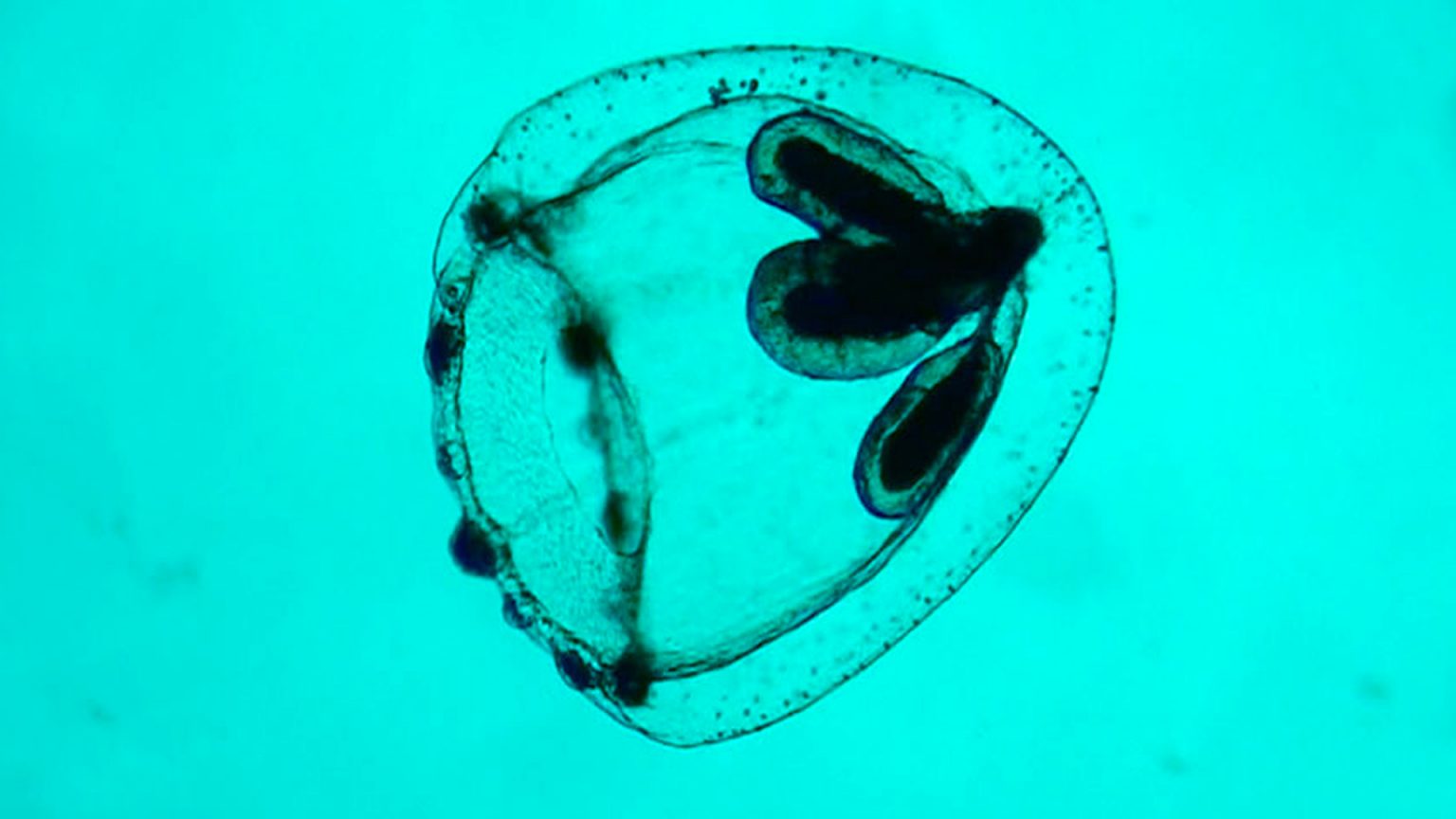“Spira Mirabilis is a feast of visual non-sequiturs and patience-testing sequences in which at one point we’re required literally to watch plaster dry,” writes Raphael Abraham in a dispatch to the Financial Times from Venice. “This meandering non-fiction tone poem takes in the clanging construction of Hang percussion instruments, long shots of embryonic marine life, and archive footage of the Native American uprising at Wounded Knee. Halfway through the late screening people were leaving in droves. Only after 90 long minutes does the film start to coalesce into a semi-coherent whole; there’s even humor in the form of a Japanese jellyfish expert and karaoke hobbyist who combines his twin passions in a show-stopping musical turn.” “The elusive currency of non-narrative cinema might just be the transcendent moment, those ecstatic instances where images or concepts that are unrelated through the traditional cause-effect logic of plot-based cinema, somehow connect, and give off an electricity of meaning, like a firing synapse, with the mind of the individual viewer as the conductor,” writes Jessica Kiang for Variety. “To say that one did not experience many such moments during Spira Mirabilis is not to say that no one will. But it would also be disingenuous, and would do a disservice to more thrillingly and thoughtfully arranged films in the category (for example Jem Cohen’s recent Counting or the superlative documentary essay The Pearl Button by Patricio Guzmán) to post-rationalize connections where none appeared at the time.”
“Italian docu makers Massimo D’Anolfi and Martina Parenti seem out of their depth,” finds the Hollywood Reporter‘s Deborah Young, granting that they’ve “earned a loyal critical following with rigorous but less difficult works like The Castle, tracking a year of daily operations at Milan’s Malpensa airport, and their much-admired 2013 doc Dark Matter, which examined the consequences of weapons testing in Sardinia. The current film shows some deep thinking but surprisingly minimal will to communicate with the audience. What is it about? That question seems incapable of being answered until in the final scenes some consensus seems to emerge around the theme of immortality and how it might be achieved biologically and artistically.” But for CineVue‘s John Bleasdale, “although the film is a challenging watch, demanding attention and patience from audiences, it is one which is ultimately deeply, deeply rewarding.”
“When Spira Mirabilis seems to have finally exhausted the four elements and found its main characters, the film then offers a guide to accompany us on the journey,” notes Camillo De Marco at Cineuropa. “A text by Borges, ‘The Immortal,’ tells the tale of a never-ending, labyrinthine journey, on which we find ourselves transformed into the starting point. Marina Vlady, the star of Welles‘s, Godard‘s, and Ferreri‘s movies, reads the story in an old movie theatre. This is cinema that continuously rises from its own ashes.”




